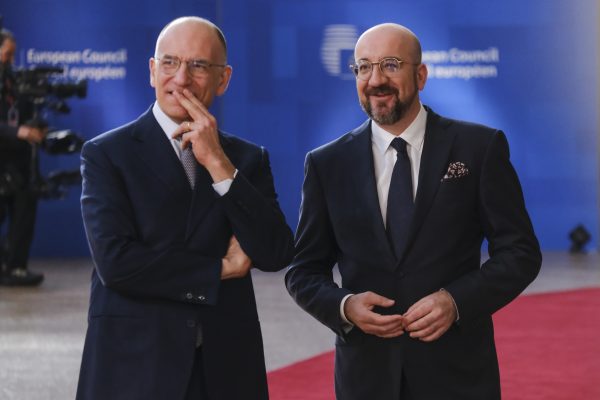“Ukraine will be liberated from the Nazis,” declared an ethereal, electric blue AI-powered video of Russian far-right leader Vladimir Zhirinovsky at the recent St. Petersburg International Economic Forum.
But there was a problem: the ultranationalist firebrand died last year of Covid-19, and his confidence in Ukraine’s “liberation” confronts the reality of a noticeable lack of Nazis, losses on the Ukrainian battlefield, and the Wagner Group’s attempted putsch. Similarly, Western sanctions and a brittle ideology look set to kill Russia’s overall AI offensive.
The annual St. Petersburg Forum long was a high-powered gathering of the tech world’s best and brightest, Russia’s premier event to attract Western investment. This year, no Western leader attended. Indians, Chinese, and Arabs dominated the guest list.
At the Forum, Vladimir Putin’s keynote gushed about Russia’s AI progress. He boasted of automated trucks and self-driving taxis and announced a new forum dedicated to AI. And yet, Putin’s main concern seemed less about the opportunities offered by AI than about the danger of a Western-dominated AI. Russia needs to “strengthen information security” and “monitor the circulation of data so that it does not harm national security or the interests of our citizens,” he warned.
Putin is right to be worried. Large language models such as ChatGPT rely on mathematical predictions which assume the patterns found in training data will be the patterns users seek. A model trained on the corpus of all online text, which is overwhelmingly in English, is likely to exhibit the same assumptions as English-language media. When this author submitted a Russian-language prompt to ChatGPT to explain color revolutions, the chatbot responded that they were democratic movements countering authoritarian regimes. This contradicts the official narrative peddled by Russian media which brands them as coups.
To the applause of those who fear generative AI could power Western ideological infiltration, several major Russian companies have announced their ambitions to rival ChatGPT. Yandex, Russia’s tech titan, has incorporated AI into its ‘Alice’ offering, a digital assistant akin to Amazon’s Alexa or Apple’s Siri. Sistemma, a publicly traded conglomerate, unveiled its own ChatGPT competitor in March, targeting professional uses and based on “research from Stanford.” This model is presumably a variation of the university’s Alpaca model, released a few weeks earlier. State-owned Sberbank debuted a beta version of ‘GigaChat’ in April. It includes image generation functionality and is supposedly already incorporated into the bank’s help bot.
Russian-trained models on native Russian content will not automatically yield pro-Russian results. With punitive laws against disinformation in place, many Russian model creators might choose to avoid discussions on sensitive issues. When this author asked Yandex’s Alice about color revolutions, the bot replied, “I am not at all ready to talk about this topic, so as not to offend anyone.” Asked what caused the “special military operation” in Ukraine, Alice responded, “I do not discuss such topics.”
Beyond self-censorship, Russian AI offerings face other strong headwinds. By the time the Russian heavyweights unveiled their models, US versions had already accelerated past them. Alpaca, the basis of Sistemma’s model, is now ranked only #15 on a popular leaderboard that compares model performance across a number of tests.
Western tech sanctions present an additional challenge. The most powerful AI models require intense computing power, which is in short supply in Russia. This could make retrieving results from Russian models far slower than using even the clunkiest VPNs to access American counterparts.
At the same time, the mass flight of IT talent following the invasion of Ukraine has limited the country’s available brainpower. The Kremlin’s paranoia and propaganda machine are fundamentally at odds with the open-ended possibilities of generative AI.
Putin must decide between the potential of AI and his cherished “information security.” He is likely to favor information control. It looks like a losing battle. Nationalists like Vladimir Zhirinovsky must be turning in their graves.
Ben Dubow is a Nonresident Fellow at CEPA and the founder of Omelas, which specializes in data and analysis on how states manipulate the web.
Bandwidth is CEPA’s online journal dedicated to advancing transatlantic cooperation on tech policy. All opinions are those of the author and do not necessarily represent the position or views of the institutions they represent or the Center for European Policy Analysis.





